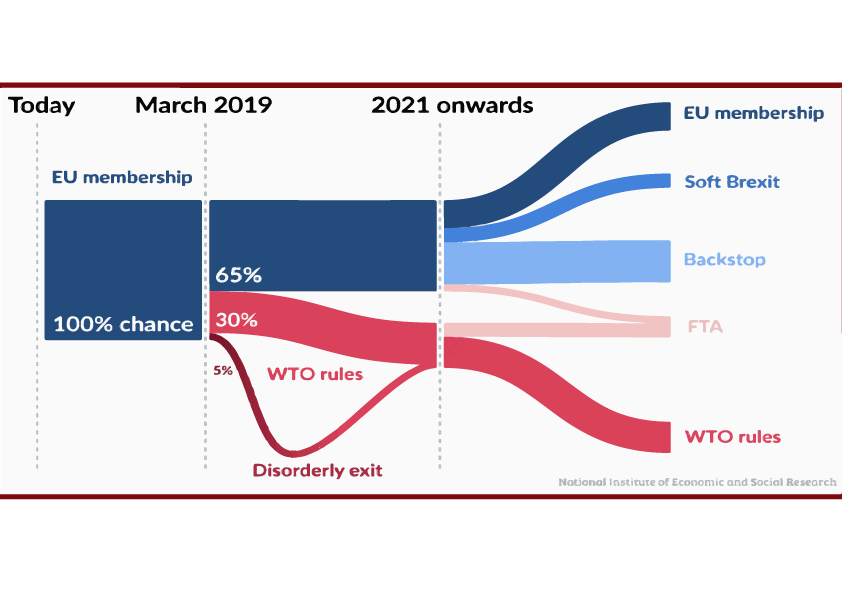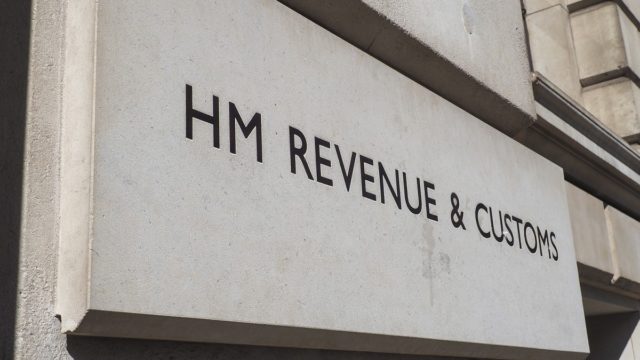- Home
- Publications
- The Economic Effects Of The Government’s Proposed Brexit Deal
The Economic Effects of the Government’s proposed Brexit Deal
 Pub. Date
Pub. Date
 Pub. Type
Pub. Type

Related Themes
Political EconomyTags
This report estimates the economic effects of the government’s proposed Brexit deal that was first published on 14 November 2018, and subsequently expanded.
The impact of any Brexit deal can be broken down into two key components: first, the economic impact of the changes in the trading relationships between the UK, EU and other countries brought about by the deal: second, the economic impact of how the deal affects uncertainty and confidence. The main focus of our analysis is on how the government’s proposed Brexit deal is likely to affect the economy, leaving aside the effect it might have on uncertainty. Our assessment is that trade with the EU, especially in services, will be more costly after Brexit. This is likely to have an adverse effect on living standards in the UK. Our central estimate is that if the government’s proposed Brexit deal is implemented, then GDP in the longer term will be around 4 per cent lower than it would have been had the UK stayed in the EU. This is roughly equivalent to losing the annual output of Wales or the output of the financial services industry in London. This is equivalent to a loss of 3 per cent in GDP per head, worth around £1,000 per annum on average to people in the UK. If the UK were to stay in a customs union with the EU, or if the Irish backstop position was to be invoked, there would still be a hit to GDP per capita of 2 per cent.
Garry Young's note on the methodology used in the report is also included.
Related Blog Posts

What Can Policy Makers Learn From Adam Smith?
Sayantan Ghosal
Graeme Roy
11 Mar 2024
5 min read

Reflections on the 2024 Spring Budget: What Was and Wasn’t Addressed
Monica George Michail
Stephen Millard
11 Mar 2024
5 min read

How the Chancellor’s Budget Could Help Households and the Struggling Regions
Arnab Bhattacharjee
Robyn Smith
Adrian Pabst
04 Mar 2024
6 min read

Adam Smith’s Division of Labour in Today’s World of Global Markets
Diane Coyle
25 Jan 2024
4 min read
Related Projects

Related News


Related Publications

Pay-Setting Among Employers in the Agriculture, Cleaning, Hospitality and Retail Sectors
11 Mar 2024
Research Report


Geopolitical Risks and the Global Economy
07 Feb 2024
Global Economic Outlook Box Analysis

Related events

What Can Policy Makers Learn From Adam Smith?

NMITE and the Political Economy of Higher Education – Jesse Norman

Economic Effects of Russia’s Invasion and Sanctions

2022 Deane-Stone Lecture – The Uses and Abuses of Economic Statistics

The Political Economy of Devolution in, and Secession from, the UK

What Next for the Levelling-Up Agenda? Addressing New and Old Challenges in the UK Regional Inequalities Landscape





